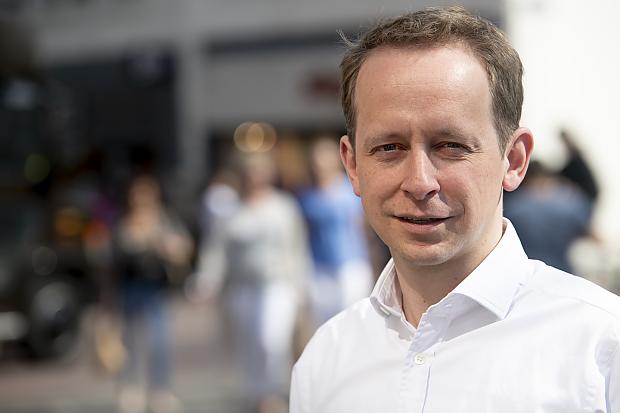Billions for EU arms industry is madness
Billions for EU arms industry is madness

Arnout Hoekstra and Sadet Karabalut
For decades we were told that the EU was an organisation dedicated to peace. Previously warlike countries were now working together because the EU and its forerunners, had now dissuaded them from going to war with each other. This appearance can no longer be maintained. The established parties have opted for far-reaching militarisation and a new Cold War with Russia. In the years to come, billions of euros are to be freed up to subsidise major European arms corporations. That is an undesirable development which presents an enormous danger to our security.
For the first time in its history the war industry is receiving a direct subsidy from the European Union. In the next eight years €14 billion could be made available for the development of the European defence industry. Some 40% of this budget is intended to be spent on research into new weapons and roughly 60% on their development.
In practice this is all about the interests of European military big business, which will be provided with large subsidies from this fund. It's a gift to the arms industry at the expense of education, social housing and energy-conserving infrastructure. Each euro can, after all, be spent only once. The political and military threat which arms policy in addition presents vis-à-vis other power blocs, especially Russia, should also not be underestimated.
Most political parties in the Netherlands support subsidising the European industry as a disguised attempt to spend more on NATO. This is in keeping w ith the US president's tweeted order to us: pay up!
A few Dutch parties go as far as to say that they would be open to the establishment of a European armed force, and in the offices of the European Commission too, such plans are certainly afoot. It's a step by step approach that could lead eventually to an independent, militarised EU. Although most parties say nothing to suggest directly that they support such a project, they willingly embrace the salami tactics applied by the Commission, by means of which we could find ourselves engaged in a European army.
Control over the decisions taken as part of this policy, life and death decisions in the end, are being removed further from the national governments of each member state, an outright degradation of national sovereignty. Developments in the EU are moving in the direction of a European superstate, with a strong arms industry and plans for its own armed forces. Discussion of the direction which the EU ought to be taking should, however, concern cooperation around social security. While Europeans must work for longer, the shortage of spending on health care and other social expenditure grows, as does inequality, yet there is always money for military big business. Would a majority of Europeans really support this? We think not.
This article first appeared, in the original Dutch, in the national daily newspaper Algemeen Dagblad on April 30. Arnout Hoekstra is the lead candidate on the SP's list for the European elections. Sadet Karabulut is a Member of Parliament and the SP's spokeswoman on foreign policy.
